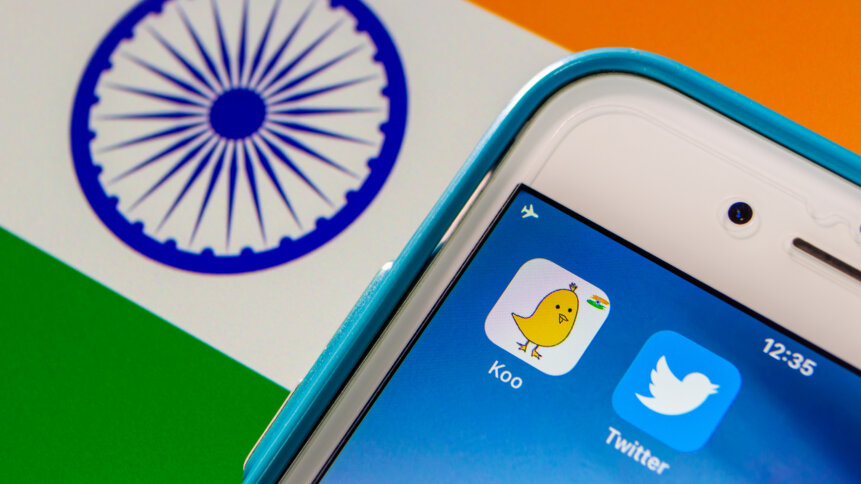Koo, Twitter’s rival in India, is integrating ChatGPT for posts creation

When Koo was launched in 2020, the Indian microblogging and social networking platform had a clear goal–to be inclusive. It calls itself an alternative to Twitter as co-founders Aprameya Radhakrishna and Mayank Bidawatka’s intention is to give voice to Indians who have been stuck on Whatsapp groups due to the lack of a regional languages option on mainstream social media apps.
Starting with just the Kannada language, Koo became the second largest multi-lingual microblogging platform available to the world, with over two dozen different languages to date. The app, considered an innovator of language-based micro-blogging, has over 50 million downloads. As its website says, Koo is actively leveraged by over 7,500 eminent personalities across various industries.
The Twitter alternative is used in 100+ countries across its app and web platform. Since around 20% of Koo users actively create content on the app, the company intends to increase that figure with the help of ChatGPT, the generative AI chatbot by OpenAI that has recently taken the world by storm. In short, the company had integrated ChatGPT into its app to help users more easily create posts.
Since ChatGPT is an AI bot that can create prose in response to prompts, Koo has allowed users to use it directly within the app to help them draft posts about current events, politics, or pop culture, Bidawatka told Reuters in an interview. He also claims that Koo is the first platform to integrate technology into the ability to compose posts.
Users can either type their prompts into the ChatGPT tool or use Koo’s voice command feature. “This will help creators get inspiration on what to create,” he said. “They could ask (ChatGPT) for the trending news in their region and then write their thoughts.” According to Bidawatka, the feature will first be available to verified accounts on Koo and eventually become available to all users.
Koo is also exploring options of adding labels to indicate whether a post was created with the help of ChatGPT. “I think people should know if the content is AI-generated,” Bidawatka added. In a separate news release, Koo said, “the generative AI feature will provide multiple use cases for creators, such as finding the top news of the day or asking for a quote from a well-known personality or even asking for the post or a blog to be written on a particular theme all within the draft section.”
YOU MIGHT LIKE

Will the release of Bluesky be the end of Twitter?
In that statement, Bidawatka shared that since Koo is the first microblogging platform in the world to integrate ChatGPT as a part of its creation flow, it hope to be surprised “by the various ways creators use this intelligent tool.” The microblogging platform has been making the most of the recent turmoil at Twitter by expanding globally.
It has also won support from the government, which has promoted the platform as a homegrown alternative to Twitter, given that the Musk-owned platform has had repeated showdowns with the Indian state following new controversial laws regulating cyberspace.
Koo has, in fact, yet to rest on its laurels. The company has been eying expansion into global markets, with the most recent being in Brazil, where it was launched last November. With its yellow bird logo, Koo was downloaded over a million times within 48 hours of being launched in Portuguese.
The Bengaluru-based app is also building functions and tools for the platform to get into the US. As part of the development first reported by The Economic Times, the platform will not charge users to get verified and plans on onboarding global leaders.
Believe! This is our moment! Let's rock it. Do let everyone you know in the US know about Koo 😇 pic.twitter.com/lPBDu5vCmJ
— Aprameya 🇮🇳 (@aprameya) November 16, 2022
Radhakrishna shared that they want to also introduce Koo in Bangladesh, the Philippines, the Middle East, and Africa. He claimed that Koo had surpassed other platforms, namely Truth Social, Gettr, Mastodon, Gab, and Parler, the report added.









